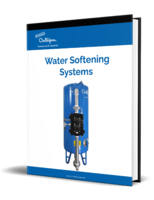American National Standard sets course for campus security plan.
Press Release Summary:
Approved as American National Standard, ASME-ITI Risk Analysis 2010 lays out risk management process to identify, analyze, and communicate risks on college and university campuses. Standard addresses threats to human life and well-being, as well as risks to facilities and infrastructure, and also encompasses potential operational hazards. Among its recommendations, standard describes how campus threat assessment teams can be put in place to help identify potential persons of concern.
Original Press Release:
How Safe Are America's Colleges and Universities? New Standard Helps Set the Course for National Campus Security Plan
Nearly five years after the deadly shootings at Virginia Tech in April 2007, colleges and universities across the nation face the continued challenge of assessing and mitigating threats posed by unexpected emergencies and natural disasters. In response to this ongoing need, the U.S. standardization community has stepped forward to help institutions of higher learning and other organizations make important strides in securing campus safety.
The VTV Family OUTREACH Foundation, a group formed in the aftermath of the Virginia Tech tragedy to advocate for legislation and programs that help ensure safety on U.S. campuses, recently sent a letter to the American National Standards Institute (ANSI) expressing thanks for its role in the publication of a risk analysis standard for institutions of higher education.
Approved as an American National Standard (ANS), ASME-ITI Risk Analysis 2010, A Risk Analysis Standard for Natural and Man-Made Hazards to Higher Education Institutions, lays out a risk management process to identify, analyze, and communicate risks on college and university campuses. The standard addresses threats to human life and well-being, as well as risks to facilities and infrastructure, and also encompasses potential operational hazards. The standard was developed by ASME Innovative Technologies Institute (ASME-ITI), an ANSI member and accredited standards developer dedicated to advancing the quality and range of risk and resilience management.
According to the foundation's letter, the standard has served as "an incredibly helpful and educational tool" in helping the VTV Family OUTREACH Foundation draft a national plan for campus safety.
The standard also provides a platform for the exchange of best practices for safety and security among participating institutions. By using common definitions and methods to compare risk, resilience, and risk management benefits, decision-makers are better positioned to allocate limited resources and assess and mitigate risk.
Among its recommendations, ASME-ITI Risk Analysis 2010 describes how campus threat assessment teams can be put in place to help identify potential persons of concern and to analyze information regarding potential threats. Following the Virginia Tech incident, the Commonwealth of Virginia mandated that public institutions of higher learning establish such teams, with the state of Illinois going one step further to mandate that threat assessment teams be formed in both public and private institutions.
"Hopefully, institutions of higher education throughout the United States and overseas will study your recommendations and implement them," wrote Lu Ann Maciulla McNabb, former director of programs and legislation at the VTF Family Outreach Foundation. "Specifically, we hope that they will create threat assessment teams or a version thereof in order to assess and monitor risks and prevent a tragedy."
"This is just the latest example of how the ANSI community is stepping up to the plate with standards-based solutions to meet critical national priorities," said S. Joe Bhatia, ANSI president and CEO. "On behalf of the Institute, I commend ASME-ITI for its important work in this area."
About ANSI
The American National Standards Institute (ANSI) is a private non-profit organization whose mission is to enhance U.S. global competitiveness and the American quality of life by promoting, facilitating, and safeguarding the integrity of the voluntary standardization and conformity assessment system. Its membership is comprised of businesses, professional societies and trade associations, standards developers, government agencies, and consumer and labor organizations. The Institute represents the diverse interests of more than 125,000 companies and organizations and 3.5 million professionals worldwide.
The Institute is the official U.S. representative to the International Organization for Standardization (ISO) and, via the U.S. National Committee, the International Electrotechnical Commission (IEC), and is a U.S. representative to the International Accreditation Forum (IAF).




